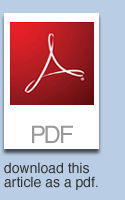
NICE TO SEE YOU!
Getting Better Outcomes From Leadership Retreats,
Offsites and Planning Meetings
In an Age of Electronic Communication
Introduction
As we move energetically into the world of Facebook, tweets, e-mails and other forms of electronic communication we risk losing the art of face-to-face interaction. Yet it is still safe to say that in successful organizations, leadership teams working and interacting together in person to accomplish specific outcomes, address problems and plan strategies is still a necessity. Often this interaction takes place periodically at retreats or off-site sessions. These are opportunities to clear out the cobwebs and focus intensively without the usual office interruptions. Participants actually engage with the person or persons behind all those electronic communication veils. Taking your management team away from the daily responsibilities is a major investment in time and expense.
Most retreats or off-sites are one to three day affairs and they truly represent a significant investment on the part of the organization. But there may be resistance. While the overriding goal is to actively engage all the participants to achieve desired outcomes, more often than not participants come to these meetings with hard-held points of view and varying levels of enthusiasm for what they feel they are about to endure. To make these meetings interesting, engaging and productive, facilitators are often used to motivate the participants, provide an unbiased sounding board, help achieve the desired outcomes and ensure that the off-site or retreat is a cost-effective endeavor.
Keys to Success
We’ve found that four elements are central to the success of management retreats and other high-level meetings. The first is establishing a close partnership between the consultant and the organization’s leadership. The second is collaborative planning so that 1) the group is focused on the right outcomes; 2) the right topics get the right amount of attention; and 3) the event is highly productive for the participants. The third element is expert facilitation to manage the group processes and take advantage of the power of the team environment. The final element is follow-up, to ensure that the momentum of the retreat is carried forward into the future working relationship and activities of the participants.
Partnership
Expert facilitators are more than just moderators or timekeepers. Your facilitator is the catalyst that will move the organization forward to address the issues, promote consensus, achieve the desired outcomes and ensure that all points of view are aired and considered. While this may happen in both obvious and subtle ways, it does require a partnership with the organizations leadership and/or event organizer so that your facilitator is “in synch” during the planning phase and throughout the meeting itself. The facilitator must have a clear picture of what he or she is facilitating toward. Thoughtfully articulating the objectives and expectations for the event and checking those with the planners is critically important to a successful meeting. From day one the facilitator should be involved in the development of the agenda, approach and statement of the outcomes.
Preparation
To ensure that all of the participants are comfortable and fully engaged in the retreat, the facilitator may want to interview some or all of the participants to understand the personalities, perspectives, and group dynamics. This preparation provides a foundation for developing a draft agenda for the retreat, which should outline the subjects to be addressed, the timing of each segment, the approach to be used and the intent or desired outcome for each segment. Once agreement is reached then a final agenda can be developed and provided to all the participants ahead of the scheduled event.
Expert Facilitation
In addition to addressing a specific set of objectives and outcomes, most retreats, off-sites and workshops are intended to take participants to a deeper level of understanding of themselves as individuals and as team members. As in a high quality orchestra, skilled facilitators don’t take over a meeting but instead they conduct them in a manner that brings out the best in each participant.
Expert facilitators demonstrate that there is more to be gained in a collective setting than can be gained from a barrage of e-mails or tweets. Individuals who rate their facilitators as excellent usually find that in addition to achieving the desired objectives they had a good time and felt that they had a meaningful contribution to the success of the event.
Follow-up
To implement the course of action agreed upon at the meeting, participants and small groups usually take on assignments. Thus, follow-up is critical to ensuring that momentum will be maintained, and that the trust and teamwork built at the meeting will continuously improve. To ensure that the follow-up discussion has everyone’s full attention, the agenda should include time to develop an action plan and the path forward. Finally, the facilitator should provide the participants with a written summary of the meeting, highlighting key decisions and the follow-up plan. This summary should be in the hands of all participants within thirty-six hours of the event to have maximum impact.
Conclusion
Cynthia Waisner, “The Masterful Facilitator” concludes, “The key characteristic distinguishing facilitation from other types of leadership is that the outcome - specific decisions and action plans - are NEVER pre-determined in a facilitative setting. Rather, the group uses the process and activities provided by the facilitator to unlock expertise, ensure thorough discussion, stay focused and reach decisions, ideally better than those any individual could have come up with alone. The goal of facilitation is ALWAYS synergistic outcomes.”
These outcomes are the result of face-to-face interaction, communication and engagement of the participants. Oh yes, retreat ground rule number one----no cell phones or PDAs allowed!
The Results Group Senior Partners subscribe to these principles and have been providing facilitation services to both private, non-profit and government organizations for over 22 years. A list of references and clients are available upon request.

